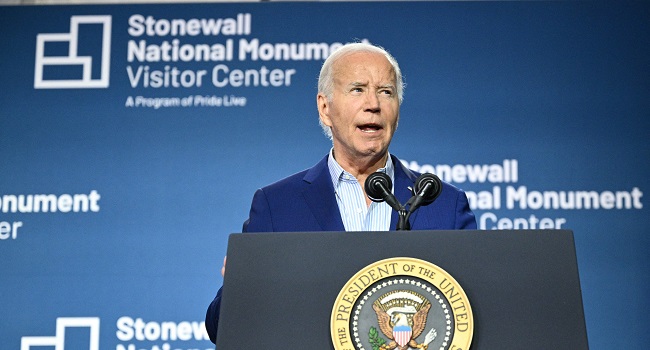On Monday, US President Joe Biden unveiled ambitious plans to reform the conservative-majority Supreme Court, aiming to make a significant impact in his final six months in office.
Biden, at 81, is advocating for a constitutional amendment to overturn the Supreme Court’s recent endorsement of Donald Trump’s presidential immunity claims. He is also proposing term limits for Supreme Court justices, who currently serve for life, a move spurred by controversial decisions such as the overturning of the nationwide abortion right.
The President will elaborate on these plans in a speech later today in Austin, Texas. He is pushing for an enforceable ethics code to address recent scandals within the Court.
Despite the slim chance of these proposals passing through a deeply divided Congress, the reforms reflect Biden’s frustration with a Court heavily influenced by Trump appointees and a growing public distrust in the judiciary.
In an opinion piece published Monday, Biden stressed that no one is above the law, whether a president or a Supreme Court justice. He expressed concern that the current state of the Court undermines public confidence in its rulings and erodes personal freedoms.
The proposed reforms include imposing 18-year term limits on justices, with new appointments every two years, to prevent any single presidency from exerting long-term influence. Additionally, Biden seeks a binding ethics code akin to those for federal judges.
The Supreme Court currently has a 6-3 conservative majority, including three justices appointed by Trump. Recent decisions, such as the 2022 overturning of Roe v. Wade and limitations on federal agency powers, have drawn criticism. The Court’s recent ruling in favor of Trump’s immunity claims has further fueled controversy.
The Court has also faced ethics issues, with Justice Clarence Thomas admitting to accepting luxury vacations from a political donor and Justice Samuel Alito facing calls for recusal from Trump-related cases due to connections with election fraud claims.
Legal experts, including Steven Schwinn from the University of Illinois Chicago, predict that the likelihood of these reforms being enacted is very low. However, Schwinn suggests Biden may be using this push to raise public awareness and make the Supreme Court a key issue in the upcoming election.


